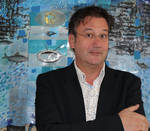Summer School - Cognition, Art and Culture: From Perception to Innovation

During the last decade the “Cognitive Turn” – initiated in Psychology and Computer Science – has reached the Social Sciences and Humanities (SSH).
In the wide field of Cognitive Science (CS) the interplay of Cognition and Culture has become an established research theme, e.g. in Cognitive Narratology, in naturalizing Aesthetics, in psychological/neuroscientific research programs on the perception and creation of art; in Cognitive Musicology analyzing interaction in music making, dance. Such impulses are now increasingly taken up by the SSH, in approaches such as Cognitive Cultural Studies, Empirical Art History, Cognitive Film Studies and others.
However, the encounter of these different academic traditions poses challenges for researchers, teachers and students. Different conceptualizations of the object of investigation and different trusted methodologies (quantitative vs. qualitative) require skills in interdisciplinary scientific communication. In fact, we are concerned with the meeting of opposing “cultures” (cf. C.P. Snow, 1959). On the one hand, the SSH rather focus on analyzing the structure of the cultural practices itself on a societal macro-level, usually in its historical context. On the other hand, in most of CS the biological and mental structures of the individual are the topic of interest. This creates a friction of critique and skepticism between the two cultures – that can only be made productive when it is well-informed.
In the proposed summer school PhD students of SSH and CS will be introduced to state-of-the-art research paradigms, programs and methods that are employed in CS in the investigation of the perception of Visual Arts and Design. Theoretical paradigms like embodied and situated cognition or the investigation of aesthetic experience on neuronal level like in neuro-aesthetics will be presented in the context of arts and culture together with hands on experience in research practices like eyetracking, fMRI etc. and field excursions. A strong emphasis is taken on interdisciplinary communication.
The leading question that connects the introduced approaches will be: How do we explain the historical process of innovation in light of the findings on visual and art perception in Cognitive Science?
The proposed summer school aims to teach practices how SSH disciplines – such as Art History, Cultural Studies, and Film Studies – may learn from and incorporate the findings and methods from CS. In bringing together the two allegedly opposing perspectives along the question of aesthetic innovation we will address the “Cognitive Turn”, the naturalization of Aesthetics as well as the social phenomena involved in art and design.
The proposed summer school on Cognition, Art and Culture will be organized and hosted by the Cognitive Science Research Platform at the University of Vienna. The research platform is an interdisciplinary unit that explores the potential of CS in Vienna and brings together members from various fields and faculties in Vienna.
It is co-coordinated with the prize-winning Middle European interdisciplinary master programme in Cognitive Science (MEi:CogSci) and freshly established Vienna Doctoral Academy for Cognitive and Brain Science as well as a PhD program in CS at the University of Vienna. The research platform hosts several third-party funded research projects in the thematic area of the proposed summer school, e.g. in Empirical Aesthetics, Cognitive Art History and the study of visual perception. The combination of SSH with Psychology, Neuroscience, Biology and other disciplines has proven to be very productive in research. However, experience has shown, that at the level of PhD students the interdisciplinary and methodological challenges need a lot of attention, and require efforts to close the gap between the two cultures. These efforts, in turn, offer a wide variety of research opportunities in basic as well as applied research.